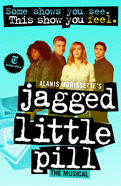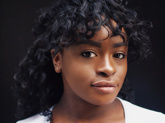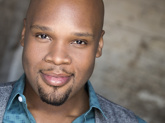Alex Newell, Celia Rose Gooding, Christian Dante White and Michael James Scott Share What Pride Means to Them

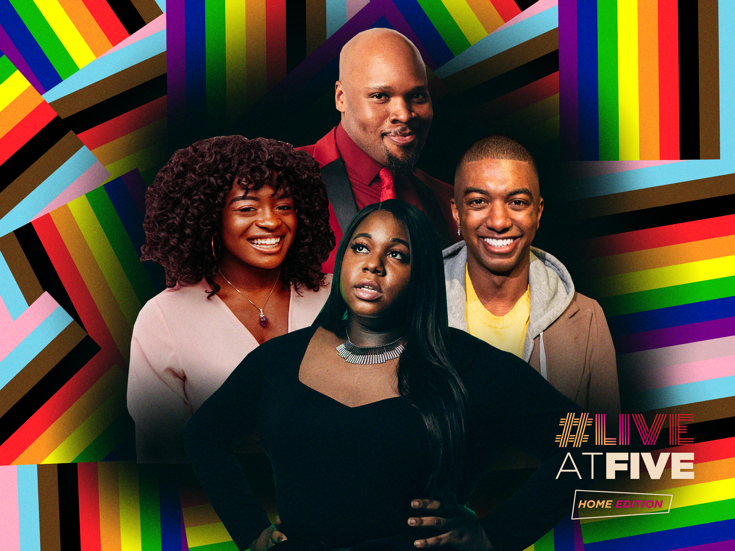
(Photos by Caitlin McNaney and Emilio Madrid for Broadway.com, Photo composite by Ryan Casey for Broadway.com)
With global protests calling for justice and racial equality, Black Broadway artists are using their voices to promote change. In an effort to keep the conversation growing, Broadway.com invited Aladdin star Michael James Scott to moderate a weekly roundtable discussion on Broadway.com's #LiveatFive. This week Scott was joined by Black queer Broadway actors Alex Newell, Celia Rose Gooding and Christian Dante White to celebrate Pride month.
Gooding, who made her Broadway debut in Jagged Little Pill, says taking on the role of Frankie Healy has created more personal growth. "I play an openly Black queer character, and I get so many messages from other Black queer folks saying how the show helped them come out to their families," Gooding said. "The more we normalize queerness in the Black community, the more acceptance there will be. Something I’m still learning and working on is caring less about other people's comfort. I’m not going to make myself feel small so others can see me. You’re going to see all of me or you’re going to go cross-eyed trying to. I, as a Black queer woman, am worthy of all things despite what this country tells me. I’m a full-fledged human and deserve to be treated as such like my white, straight, cis actors. If you want me to give 200 percent while accepting other people’s 100, then we are not on the same team. I refuse to make myself feel small anymore—I got too much stuff I got to do."
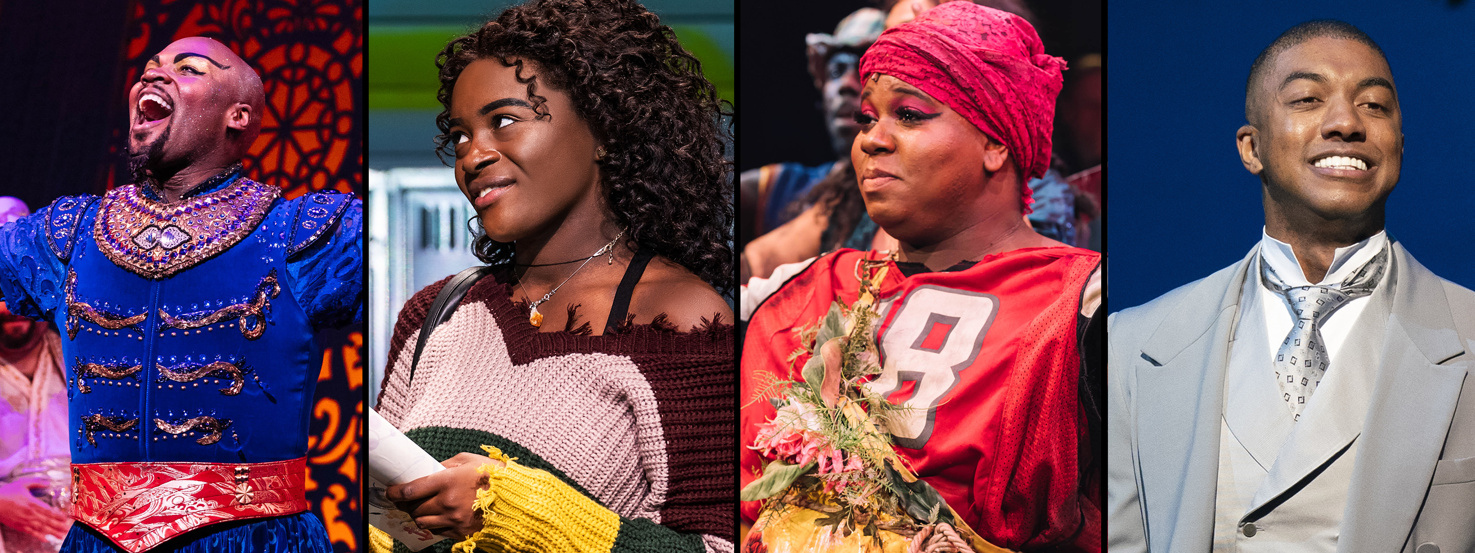
Having made his Broadway as Asaka in the Tony-winning revival of Once On This Island and making it big on TV hits like Glee and Zoey's Extraordinary Playlist, Newell says the the most important thing is respect. "If you respect yourself first, everything comes into play second," he said. "I was unemployed and said no to things because I wanted to take myself seriously. I wasn't going to just take any role. I wanted to carve a place for me and the people after me. I never saw myself on television or Broadway. To be successful, you have to put your own self on the line and know that your talent will get you what you need."
For White, knowing the power of his talent is what has led him into some of his biggest roles. "I push my agents to send me in not just for 'Black' shows. I’m used to being the only Black person in white spaces," he said. "In Hello, Dolly when I had to step up to the plate last minute, I’m representing Black people and queer people. There is more of a responsibility for me. When My Fair Lady happened, I was very adamant that for my first principal role I would be out and speaking to the Black press. I work in excellence—I work in Black excellence. I come prepared. Too many people have paved the way, and it's our job to continue that legacy to make it easier for the people coming behind us. Everything I’ve ever done in my career is about the Black boy joy and the Black lives matter. I’m honored always to represent Black queerness on the Broadway stage."
"I’m not going to make myself feel small so they can see me. You’re going to see all of me or you’re going to go cross-eyed trying to."
When asked about the change they want to see happen in the Broadway community, Newell says it's all about being heard and acknowledged, while Gooding looks to happiness. "Give us more joy," Gooding said. "I feel like for Black people to be seen as worthy, we have to overcome some struggle. I don’t understand that." White hopes that continued conversations lead to more diverse and inclusive storytelling. "I’m so tired of the same five stories being told," he said. "There are new stories and faces and types of people that need to be seen on stage. I’ve found that white gay male actors can do so much, but there's only room for one Black gay actor. They need to create more avenues for Black queer stories on Broadway. We're constantly under a white male gay scope, and we need to get a new lens. We're ready for it."
Listen to the full discussion by watching the episode below!

